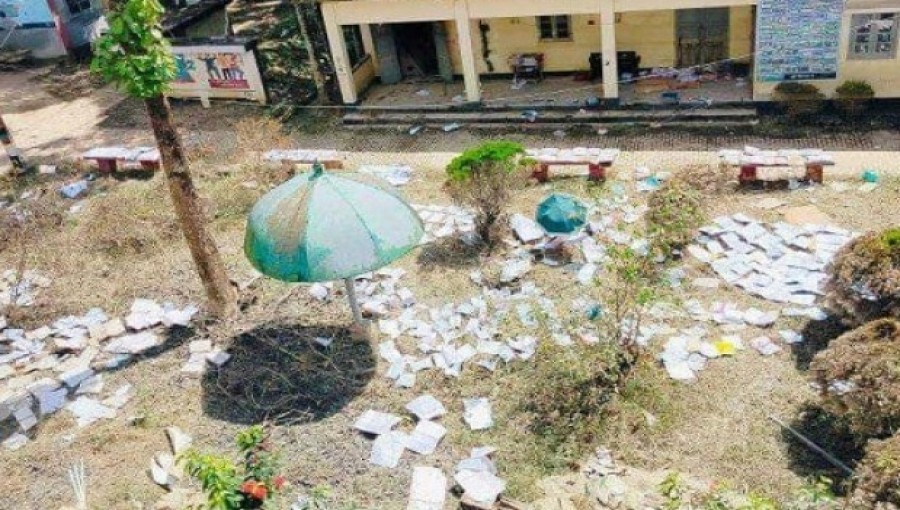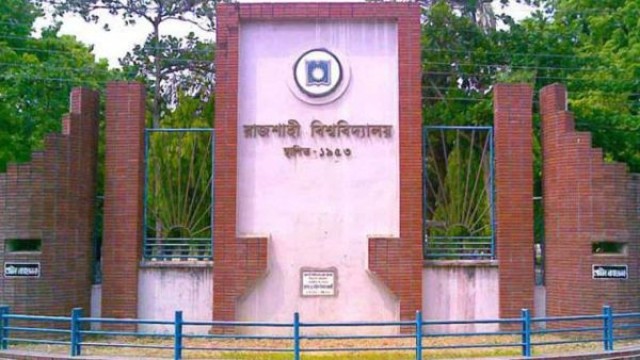Feni, Sep 16 (V7N) - The recent floods in Feni district have severely impacted the education sector, leaving 97,553 students across 559 primary schools without textbooks. As floodwaters inundated homes, not only were furniture and belongings damaged, but essential educational materials like books were also destroyed. Schools faced similar destruction, and without a swift supply of new books, students risk falling behind in their studies, potentially leading to disinterest in school and an uncertain academic future. Ensuring schools have basic necessities like furniture, drinking water, and food for students is now a top priority.
This catastrophic flood, one of the worst in recent history, has devastated the district, particularly its educational infrastructure. School offices, chairs, tables, textbooks, electrical systems, computers, and tube wells have been severely damaged. Officials estimate losses in the education sector to be nearly 1 billion taka. Despite the reopening of schools last Sunday, the learning environment remains inadequate. Some students have returned but are leaving again due to the lack of books.
The district education department reports that all educational institutions were affected by the flood, with ground floors submerged in water, leading to damage to electrical lines, electronics, furniture, and documents.
Abdul Aziz Sayem, a second-semester student of the Architecture Department at Feni Polytechnic Institute, expressed concern about practical classes, as the labs have been rendered unusable. All his books and study materials were also lost.
Government estimates suggest it will take around 700 million taka to restore the damaged schools. The losses in government primary schools alone amount to 30.9 million taka, while secondary schools, colleges, and madrasas have faced damages of approximately 350 million taka. Infrastructure damage is estimated at 280 million taka, and all student textbooks have been destroyed.
Md. Shafi Ullah, District Education Officer, said, “There are 361 educational institutions, including 10 specialized ones, in the district with a total of 161,046 students. Of these, 123,469 students’ textbooks were lost in the flood. We have informed higher authorities and expect to deliver new books within 15-20 days.”
The district administration confirmed that almost all educational institutions were used as flood shelters. Currently, about 3,000 displaced people remain in 22 schools. In schools where evacuees have left, efforts are underway to clean and prepare the premises for classes.
District Commissioner Musammat Shahina Akhter stated that steps are being taken to address the textbook shortage and ensure a conducive learning environment. “We are working urgently to prevent students from dropping out or losing interest in their education. As soon as we receive new textbooks from the National Curriculum and Textbook Board (NCTB), they will be distributed.”
Md. Sheikh Mostafizur Rahman, Principal of Feni Polytechnic Institute, said, “Our college was submerged under eight feet of water, resulting in losses of around 5 million taka. Nine ground-floor labs were damaged, but we are focusing on resuming theoretical classes for now.”
Assistant District Primary Education Officer Farid Uddin Ahmed reported the flood damage and stressed the urgent need to deliver textbooks to students and restore schools.
Nasir Uddin Ahmed, District Primary Education Officer, stated that of the 143,570 primary school students across Feni’s six upazilas, textbooks for 97,553 were destroyed.
Israt Nusrat Siddika, Executive Engineer of the District Education Engineering Department, estimated that 280 million taka will be required to restore the infrastructure of high schools, colleges, and madrasas.
END/MKB/SMA/































Comment: